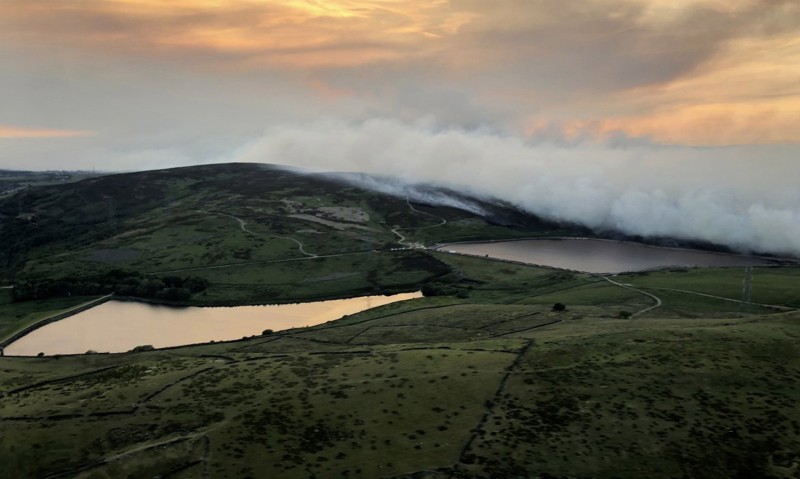
National Parks, councils, AONBs and Natural England have been urged to work in partnership to mitigate fire risks as much of the UK continues to bask in hot, dry weather.
With the heatwave set to continue into next week in most parts, the NFU and walking charity Ramblers are urging the public to be the eyes and ears of the countryside in a bid to prevent further wild fires breaking out.
There are also calls for National Park authorities, local authorities and AONBs to do more to mitigate the risks of fire.
This includes taking actions such as strategically placing water bowsers and increasing the number of wardens in areas where people regularly access the countryside.
Conditions are dryer than the fabled summer of 1976 and its putting UK farms at high risk of devastating fires.
It follows recent moorland and gorse fires seen throughout the UK during the ongoing heatwave, most notably at Saddleworth Moor, Winter Hill and Glenshane Pass, Northern Ireland.
A farmer has highlighted the destruction of the Saddleworth Moor fire, and how one gamekeeper lost everything because of it.
'Countryside Code'
NFU Deputy President, Guy Smith has urged everyone out and about enjoying the British countryside to act responsibly, and to follow the Countryside Code.
“With much of the country affected by this remarkable run of weather - hot weather, high temperatures and lack of rain – we’re seeing widespread tinderbox conditions,” Mr Smith said.
“That’s leading to a significant increase in the numbers of wild fires such as the ones on Saddleworth Moor, Winter Hill and Marlow and that risk is only going to increase as crops ripen over the next two weeks.
“Farmers should also take extra precautions given the increased risk such as having checked fire extinguishers on all vehicles involved in the harvest campaign and to put firebreaks in around fields as soon as they are harvested.”
The NFU has worked with a number of local authorities to place water bowsers in strategic places where the public regularly access the countryside.
The union also believes that there must be an urgent review of the fire severity index, which determines when some areas can be closed due to fire risk.
Mr Smith added: “Numerous areas of the country have experienced exceptional fires this summer which this index has not recognised. This demonstrates the need to review the index to ensure that those areas can be closed in exceptional circumstances in the interest of the safety of the public, landowners and occupiers.”
